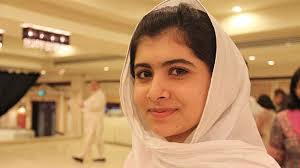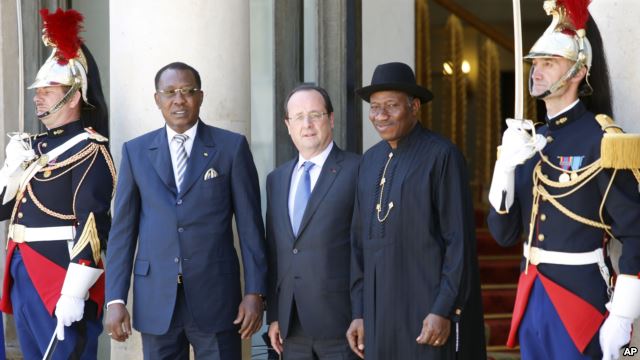The greatness of the story is in its awesome simplicity.
Around midday last Friday when she emerged the youngest person ever to win the Nobel Peace Prize, Malala was in school attending chemistry class. She simply acknowledged the good news from her teacher and politely asked that the class be continued. There were other students in class at the Edgbaston High School for Girls in Birmingham, United Kingdom and the fact that she had just become $1.11m richer shouldn’t prod her to have school activities disrupted.
She waited till the close of school to speak to the media on a day that will go down in history as one of the greatest for youth empowerment and girls’ education. “When I found I had won the Nobel Peace Prize, I decided I would not leave my school, rather I would finish my school time. I went to the physics lesson, I learned. I went to the English lesson. I considered it a normal day,” says the 17-year-old education campaigner.
What a fitting recognition the Nobel Prize brought for the Pakistani-born Malala Yousafzai who was shot in 2012 in a school bus by Taliban gunmen for being a vocal advocate of girl’s right to education. She was subsequently flown to the UK for treatment and has continued to study and lead campaigns on girls’ education. Her Nobel Prize is fitting indeed considering that it came on the eve of International Day of the Girl.
Advertisement
Malala won for what the Nobel Committee called her “heroic struggle” for girl’s right education. She shared the peace prize with 60-year-old Kaslash Satyarthi, an Indian children’s right activist. “My message to children all around the world,” she said on Friday “is that they should stand up for their right.” It was a bold message from a courageous girl who values her right to education and to life. And that story of hope and courage should resonate round the world, particularly in Nigeria where the plight of more than 200 Chibok girls abducted six months ago by Boko Haram terrorists is still bafflingly uncertain.
By daring to speak for girls’ right to education and against the idiotic message of misguided extremists who preach against the kind of emancipation that education brings, Malala has had the privilege to address the United Nations; met with president Barack Obama; was listed among Time magazine’s 100 most influential people and just one year after her survival from the bullet of the Talibans, published a memoir: I am Malala.
But by far the most important of Malala’s interventions, at least to a Nigerian, was her visit to Abuja in July and meeting with President Goodluck Jonathan simply to identify with the #BringBackOurGirls campaign. Her statement after her encounter with President Jonathan was as moving as it was instructive. “I met and told him (Jonathan) that I hear the voices of my sisters. I am representing my sisters and their parents to you today. And, as you are the elected president, you need to fulfill your responsibility. And your responsibility is listening to your people that are saying ‘bring back our girls’.”
Advertisement
On the basis of Malala’s plea, Jonathan agreed to and did meet with some parents of the abducted girls. But like everything Nigerian, money was thrown at the problem. A token to the parents and relatives of the victims was given for ‘transportation’, it was reported, but no girl has been rescued till date, so much so that a few of the parents are said to have accepted their fate, left everything to God and moved on.
But Malala’s message, which is indeed the commonsensical thing to say, is that the Chibok abduction is not about the parents or the fate of the girls. It is about the national tragedy of it and the responsibility of an elected Commander-in-Chief to rise to the occasion and save his government from this tremendous embarrassment.
But I ponder.
Malala’s courageous advocacy and her well-deserved peace prize should extract concern from one, as to why Nigerians, generally regarded as peace-loving and reputedly the happiest people on earth, would be failing to produce heroes who genuinely and selflessly champion causes that will be open to global scrutiny and acknowledgement. If we couldn’t produce a Mother Theresa, should we also fail to breed our own Malala without necessarily pumping bullets into their bodies before the world would notice them? Are we satisfied with just the Nobel Prize for Literature?
Advertisement
But then I remember an exceptional woman, Alaere Alaibe, and her FREE advocacy before she was snatched away by death five years ago. Alaere in 2007 had won the UNESCO Confucius Prize for Literacy. The honour came in recognition of her effort in empowering girls and poor women in Bayelsa State through the Family Reorientation Education and Empowerment. How she was singled out for that wonderful recognition had baffled her and curiosity got her introduced to me by my friend Sam Akpe, then the Abuja Bureau Chief of Daily Independent who thought if it was about UNESCO, Paris and Literacy I should know a thing or two about it.
Although she was married to Timi, a man of means and influence, Alaere was genuinely committed to empowerment and education for the less-privileged. Through her NGO I met an elderly woman with tears strolling down her cheeks, expressing gratitude that she was able to read the figure written on a cheque and was able to write and sign her name each time she went to the bank, all because of FREE.
Akpe and Princess Deun Solarin in London would recall Alaere’s selflessness and commitment to education and peace in the Niger Delta and how we had thought the Nobel Peace Prize might even be on the horizon.
But we lost her at her prime, at just 45.
Advertisement
Who knows, maybe a Malala of our own will miraculously emerge from the Sambisa forest; just maybe.
Advertisement
Views expressed by contributors are strictly personal and not of TheCable.
Add a comment






